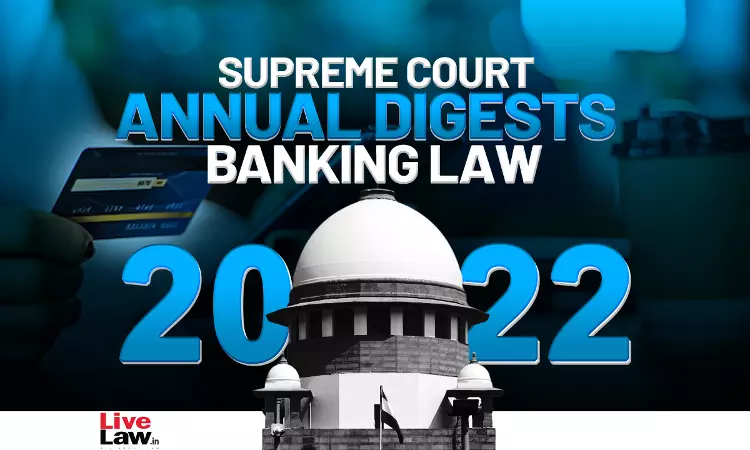Next Story
19 Jan 2023 8:37 AM IST
Banking - The Bank employee always holds the position of trust where honesty and integrity are the sine qua non. (Para 11) United Bank of India v. Bachan Prasad Lall, 2022 LiveLaw (SC) 164 : AIR 2022 SC 943 : (2022) 4 SCC 358 Banking Companies (Period of Preservation of Records) Rules, 1985 - FERA Proceedings initiated against Banks - Show causes notices issued in the year 2002,...

